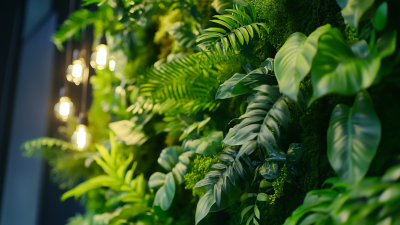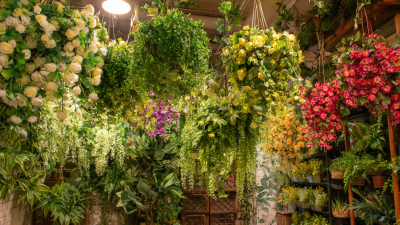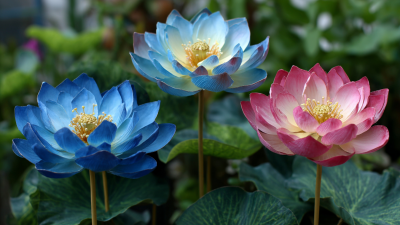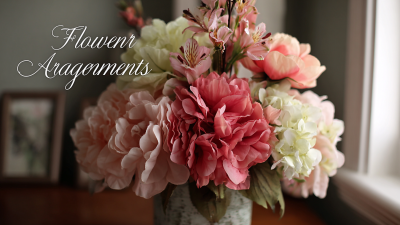
The 2025 China Import and Export Fair, also known as the Canton Fair, is set to showcase a plethora of innovative trends in the realm of home décor, with a particular emphasis on
"Artificial Lotus Flowers for Decoration." According to a recent market report by Research and Markets, the global artificial flowers market is projected to reach
USD 2.9 billion by 2025, with a significant growth rate driven by the increasing demand for low-maintenance yet aesthetically pleasing home décor options.
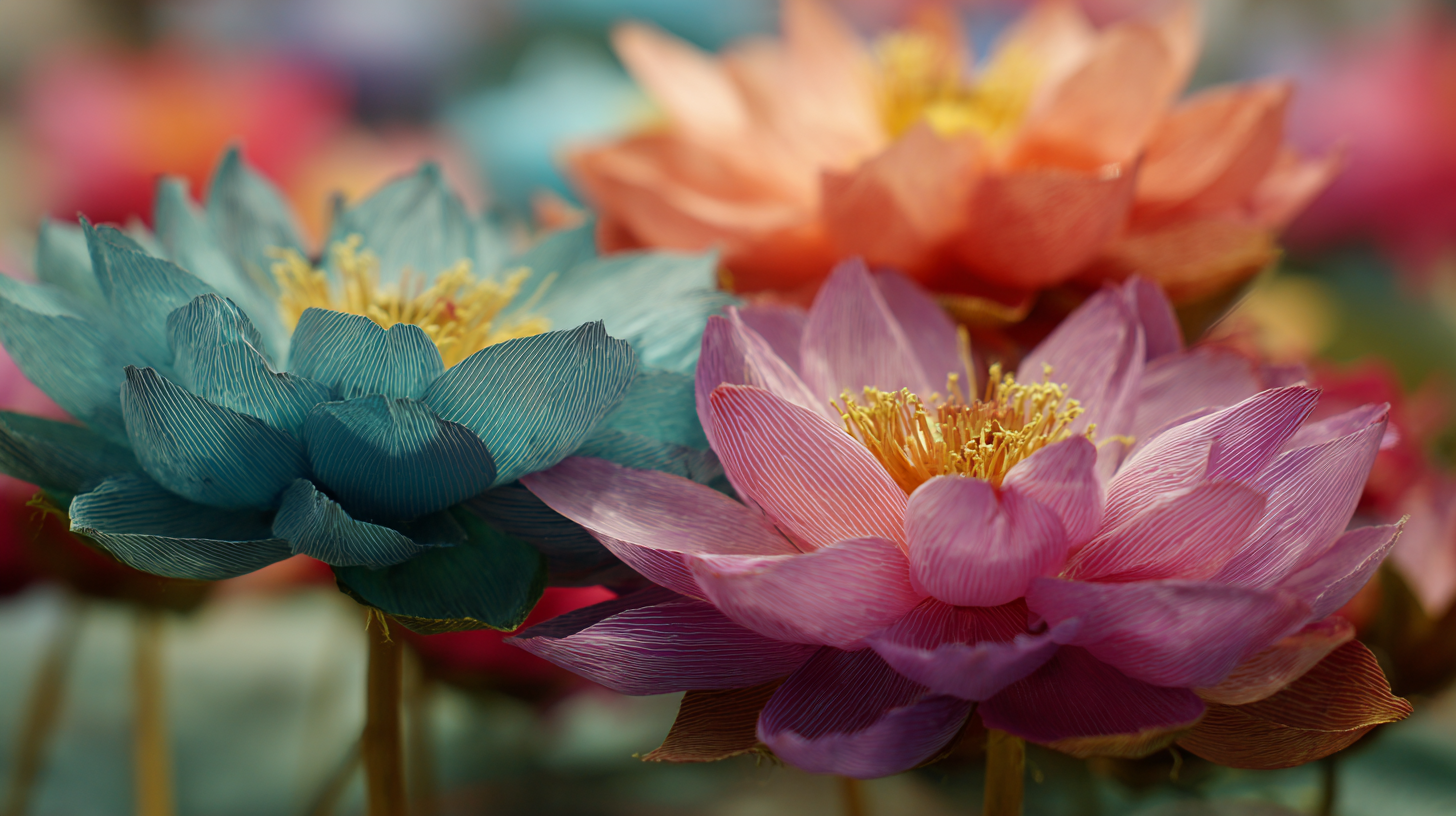 Artificial lotus flowers, renowned for their symbolic meaning of purity and beauty, are anticipated to become a focal point in this expanding market. As consumers increasingly seek sustainable and lasting decor alternatives,
the design and production of high-quality artificial lotus flowers are evolving to meet these demands, incorporating advanced materials and lifelike craftsmanship. The upcoming fair will provide a platform for manufacturers and designers
to present their latest innovations, capturing the attention of a global audience keen on enhancing their living spaces with these exquisite decorative pieces.
Artificial lotus flowers, renowned for their symbolic meaning of purity and beauty, are anticipated to become a focal point in this expanding market. As consumers increasingly seek sustainable and lasting decor alternatives,
the design and production of high-quality artificial lotus flowers are evolving to meet these demands, incorporating advanced materials and lifelike craftsmanship. The upcoming fair will provide a platform for manufacturers and designers
to present their latest innovations, capturing the attention of a global audience keen on enhancing their living spaces with these exquisite decorative pieces.
The 2025 China Import and Export Fair is set to unveil a plethora of innovative trends in decorative items, with artificial lotus flowers taking center stage. The production of these exquisite flowers is increasingly reliant on advanced materials that enhance their aesthetic appeal and durability. For instance, manufacturers are now experimenting with eco-friendly polymers and biodegradable substances that not only mimic the elegant appearance of natural lotus blooms but also align with sustainable practices. This incorporation of innovative materials reflects a growing trend in the decoration industry towards environmental responsibility.
Additionally, advancements in manufacturing technologies allow for more intricate designs and lifelike representations of lotus flowers. Techniques such as 3D printing enable designers to create unique patterns, while the use of special coatings helps in achieving vibrant colors and resilience against environmental factors. By harnessing these cutting-edge materials and technologies, artificial lotus flowers can cater to a diverse array of decorative needs, appealing to both traditional motifs and modern aesthetics. This transformation promises to redefine the landscape of home and event decoration, offering consumers beautifully crafted, long-lasting options.
This bar chart represents the market interest in various innovative materials used in the production of artificial lotus flowers for decoration as observed at the 2025 China Import and Export Fair. The data reveals that silk remains the most popular material, followed by polyester, latex, silicone, and nylon.
As we approach the 2025 China Import and Export Fair, the innovation in artificial lotus flowers is becoming a focal point of design trends. By seamlessly blending traditional aesthetics with modern sensibilities, designers are reshaping how these elegant decorative pieces are perceived and utilized. The lotus flower, a symbol deeply entrenched in Asian culture, reflects purity and beauty. Contemporary interpretations incorporate vibrant colors, unique textures, and eco-friendly materials, creating a sophisticated balance between heritage and modernity.
Tips for selecting artificial lotus flowers for your space include considering the color palette of your environment. Opt for hues that complement existing decor while providing a striking contrast. Additionally, pay attention to the material; silk and natural fibers will lend a more lifelike feel, enhancing the authenticity of the design. Also, think about the scale of the flowers—larger arrangements can serve as statement pieces, while smaller ones beautifully accentuate other decorative elements.
Incorporating these innovative designs into your home or event decor can create a captivating atmosphere. Pair artificial lotus flowers with minimalist vases or traditional ceramics to further enhance their visual appeal. Choose arrangements that suit the occasion, ensuring that they harmoniously blend with both the sentiment of the event and the surrounding aesthetic.
| Trend Category | Description | Materials Used | Color Options | Usage Settings |
|---|---|---|---|---|
| Eco-Friendly Designs | Focus on sustainable materials and production processes. | Recycled plastics, biodegradable materials | Soft pastels, earthy tones | Home decor, outdoor events |
| Traditional Motifs | Incorporation of cultural patterns and symbols. | Silk, velvet fabrics | Rich hues, gold and silver accents | Ceremonial events, luxury settings |
| Minimalist Aesthetics | Simple and clean designs emphasizing form. | Synthetic fibers, simple metals | Monochrome, neutral colors | Modern homes, offices |
| Technological Integration | Incorporating lighting and interactive elements. | LEDs, smart materials | Dynamic color changing | Exhibitions, art installations |
The artificial flower industry is witnessing a significant shift towards sustainability practices, particularly as the demand for realistic, environmentally friendly decorative items grows. At the 2025 China Import and Export Fair, innovative trends in artificial lotus flowers will showcase not only aesthetic appeal but also the commitment of manufacturers to sustainable production methods. Companies are increasingly opting for eco-friendly materials, such as recycled plastics and organic dyes, that minimize environmental impact while maintaining high product quality.
Moreover, manufacturers are adopting energy-efficient processes and responsible sourcing practices. By collaborating with local suppliers and leveraging renewable resources, they are reducing their carbon footprint and supporting local economies. The emphasis on sustainability is not simply a trend but a vital aspect of business strategy that resonates with environmentally conscious consumers. As artificial lotus flowers gain popularity in home decor, these sustainable practices ensure that beauty does not come at the cost of the planet, merging elegance with ecological responsibility.
As we approach the 2025 China Import and Export Fair, innovative marketing strategies for promoting artificial lotus flowers are becoming increasingly crucial. According to a recent market research report by Grand View Research, the global artificial flower market is projected to reach $12.3 billion by 2028, growing at a CAGR of 4.6%. This growth presents a significant opportunity for manufacturers and retailers to leverage unique selling propositions (USPs) surrounding artificial lotus flowers, which symbolize purity and beauty in many cultures.
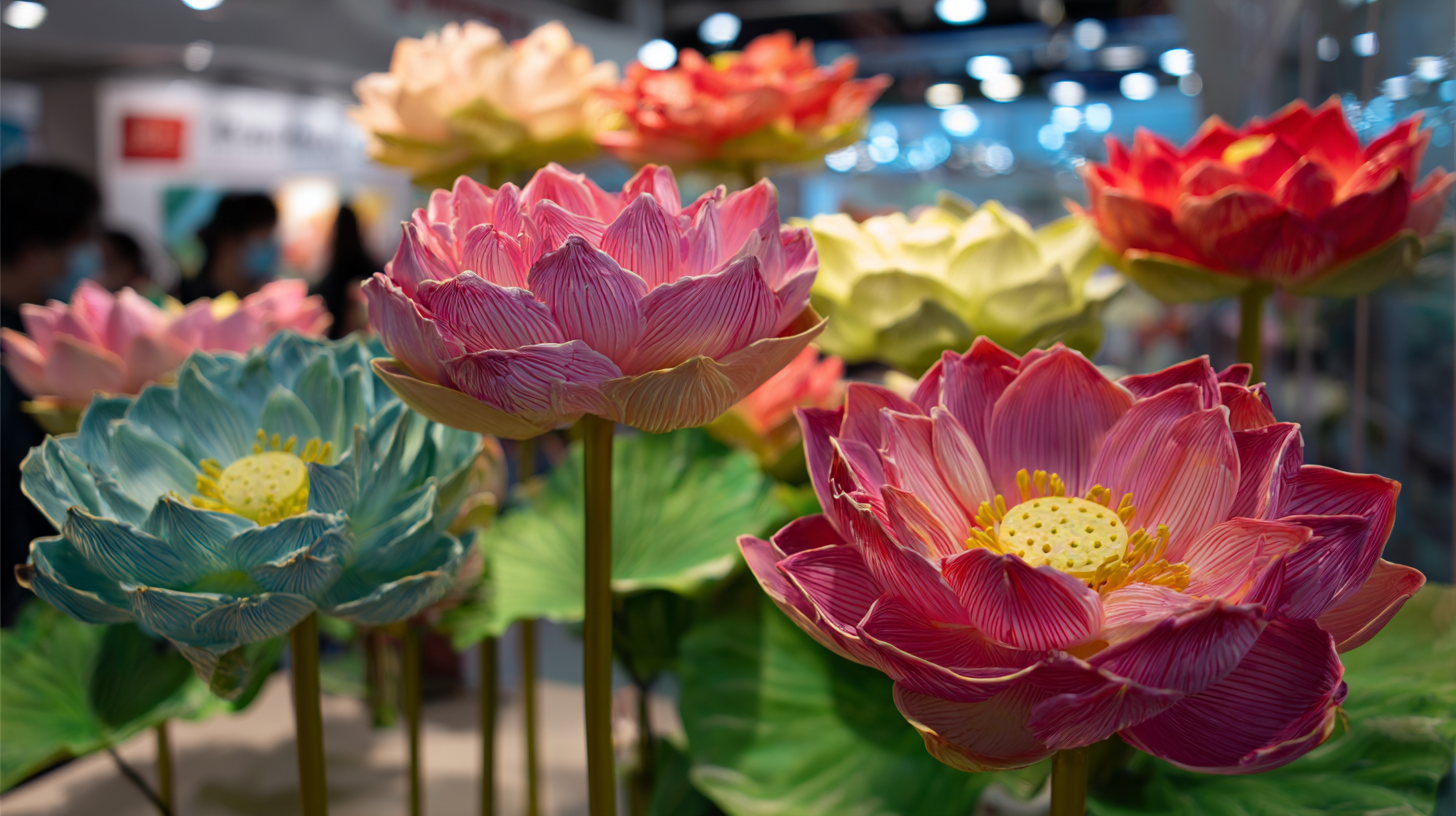
One effective strategy is to harness the power of digiтal marketing through social media channels. Platforms like Instagram and Pinterest are ideal for visually showcasing the elegance of artificial lotus flowers, drawing attention from home decor enthusiasts and event planners. Incorporating influencer partnerships can enhance brand credibility, as evidence suggests that brands with strong influencer collaborations see a sales increase of up to 10 times, according to a report by Influencer Marketing Hub. Utilizing visually driven content alongside compelling narratives about the cultural significance of lotus flowers can create a deeper connection with potential customers, enticing them to choose artificial variants for decorative purposes.
Additionally, focusing on eco-friendly production methods can attract environmentally conscious consumers. With a growing trend toward sustainability reflected in a McKinsey report indicating that 66% of consumers are willing to pay more for sustainable brands, artificial lotus flower manufacturers can position themselves as responsible choices in the market. Highlighting sustainable materials used in the crafting of these decorative pieces can resonate well with modern consumers who value both aesthetics and environmental impact.
The rising demand for artificial decor items is a notable trend in consumer preferences, particularly evident in the growing market for decorative products like artificial lotus flowers. The global wall art market is projected to swell from $66.89 billion in 2025 to $118.79 billion by 2032, reflecting a compound annual growth rate (CAGR) of 8.55%. This surge highlights a general inclination towards aesthetic home decoration, where artificial items play a significant role due to their longevity and low maintenance needs.
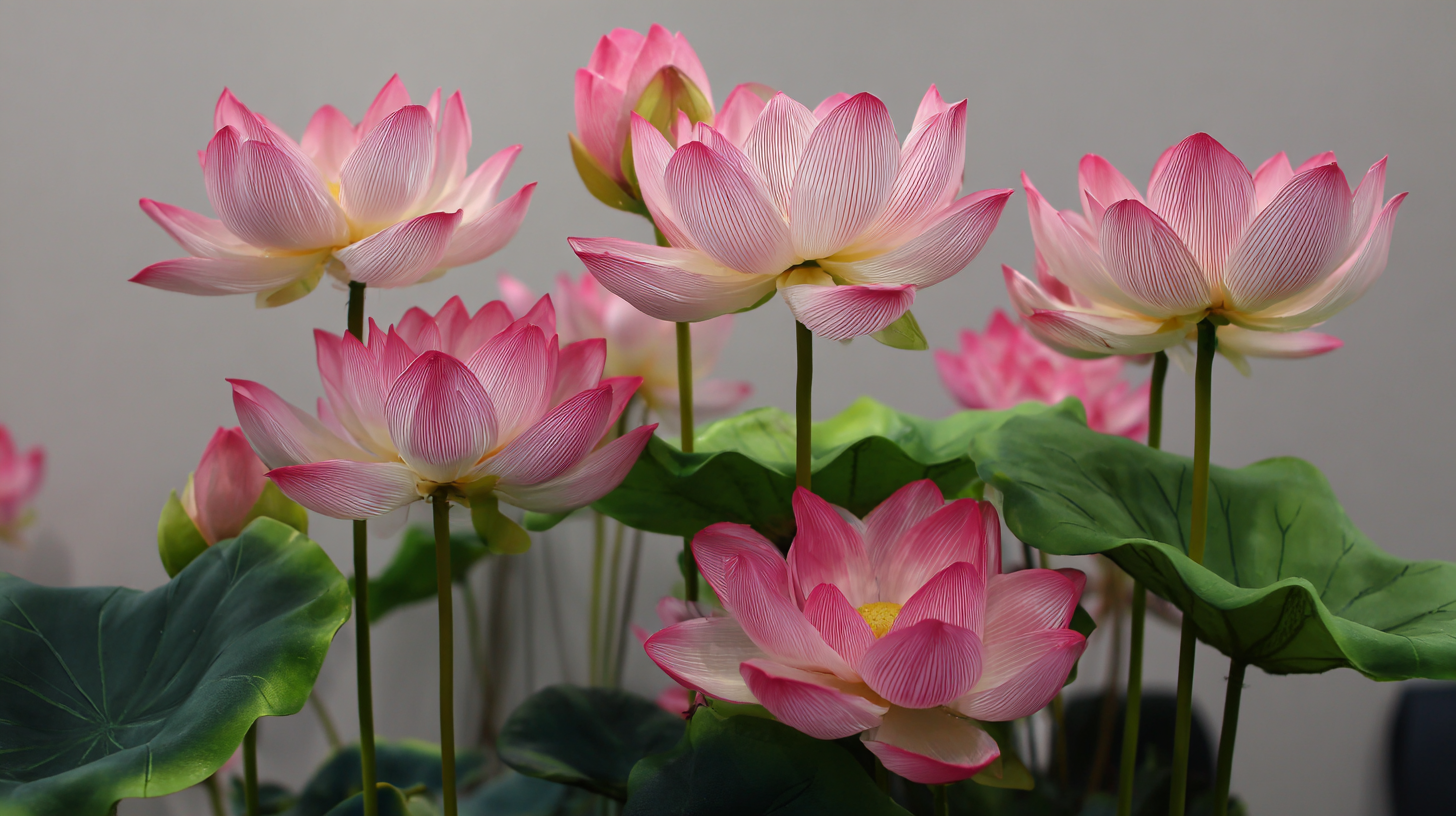
Additionally, the art reproduction market, projected to increase from $48.21 billion in 2024 to $77.57 billion by 2032, with a CAGR of 6.29%, further emphasizes the escalating interest in decorative items that offer artistic value without the fragility of original pieces. As consumers seek unique home decor solutions that fit their lifestyle and aesthetic preferences, innovations in artificial flowers and other decorative items are becoming increasingly appealing. With the capability to reinforce styles while being cost-effective, the artificial decor market is poised for significant growth in tandem with evolving consumer preferences.

